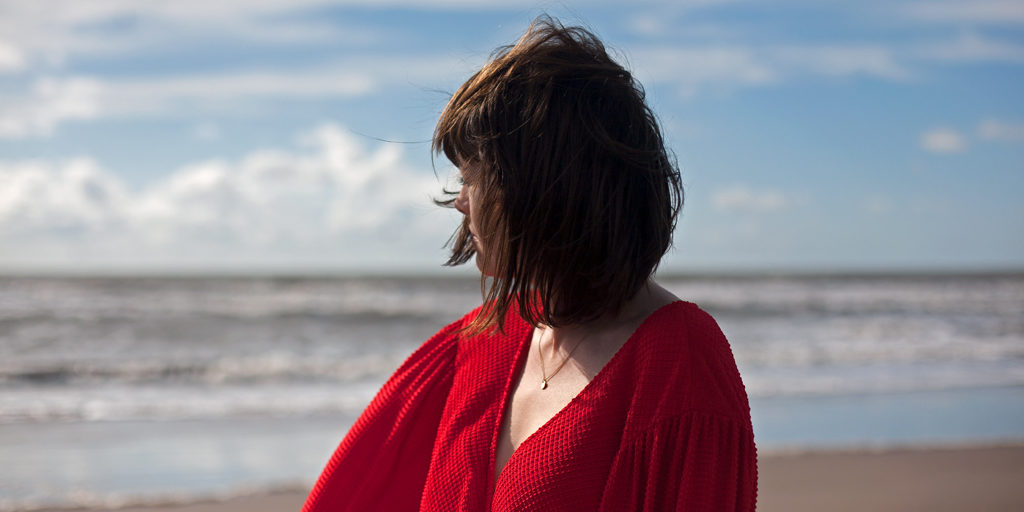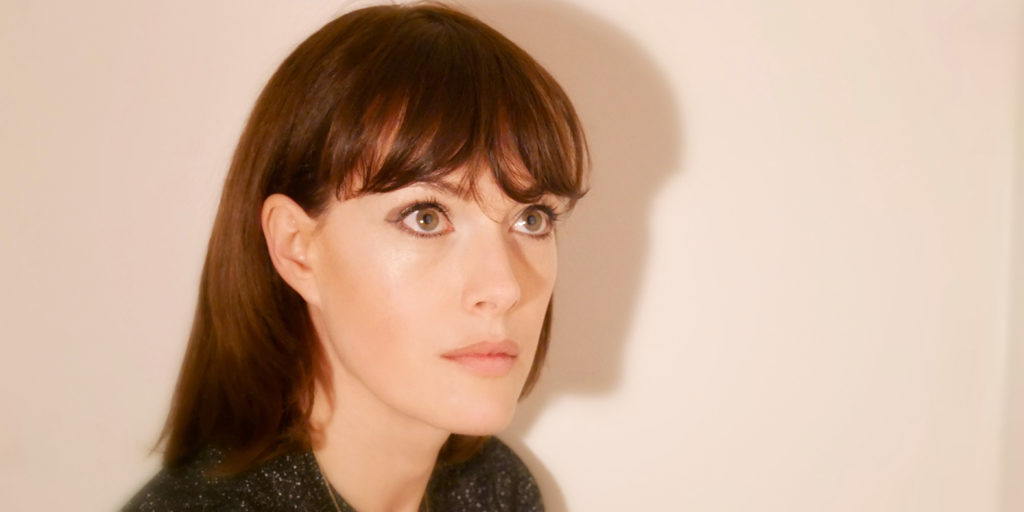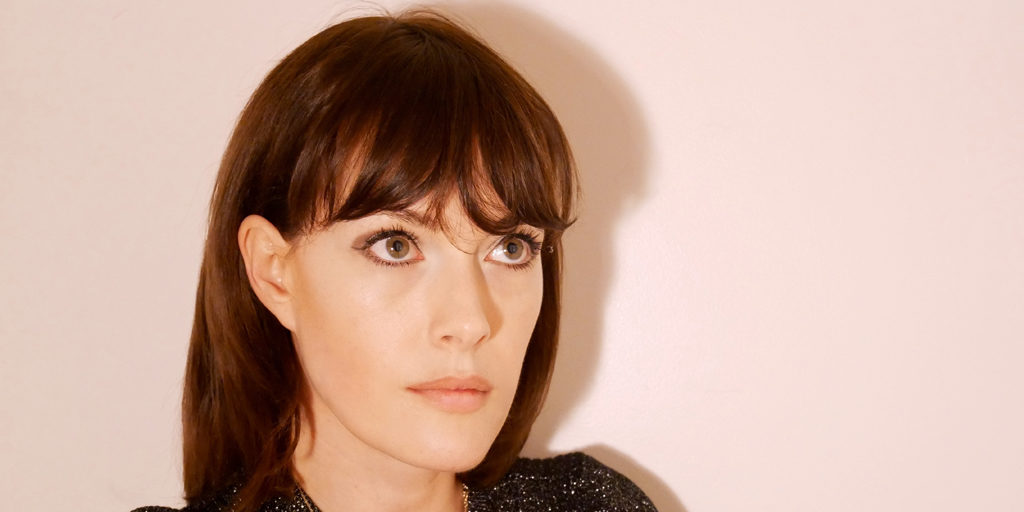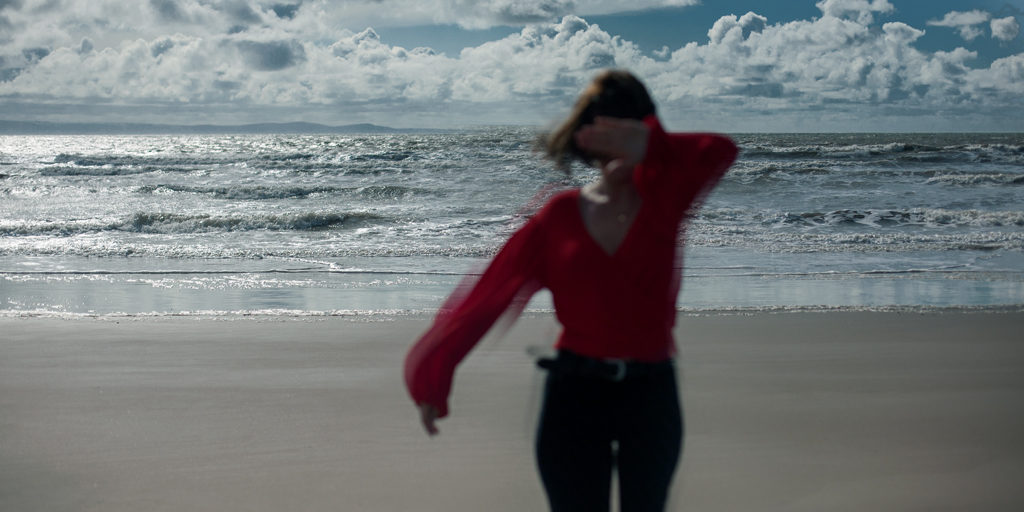

A connection with Cornwall
We catch up with fluent Cornish artist, Gwenno Saunders, about her new Cornish album and her upcoming performance at Looe Music Festival.
Gwenno Saunders is one of only a few fluent speakers of the Cornish language, but it’s one with which she’s been intimate since childhood. Her father, Tim Saunders, is a noted Cornish poet and linguist and growing up, while her father spoke in Cornish, her mother spoke Welsh, so English is actually Gwenno’s third language!
Gwenno’s career so far is rich and varied, from being a cast member of Michael Flatley’s Lord of the Dance, playing a lead role in a production in Las Vegas, to starring in a Welsh language soap opera Pobol y Cwm on S4C, for whom she would later host her own programme! She later joined The Pippettes in 2005, who she joined for five years of touring and recording, before touring as a synth player with P’nau and Elton John in 2012!
Then, in 2014, Gwenno released her first full-length solo album in the Welsh language called ‘Y Dydd Olaf’, which won ‘Best Welsh Album’ at the National Eisteddfod and the ‘2014-2015 Welsh Music Prize’.
Her new album, released in March this year, is written entirely in Cornish. Titled ‘Le Kov’, it is an exploration of the myths and drolls of Cornwall, and the survival of Britain’s lesser-known Brythonic language. We caught up with Gwenno ahead of her appearance at this coming September’s Looe Music Festival (21st until 23rd), in a bid to learn more about her connection with the Duchy.
Where did you go to school to learn Cornish?
“I didn’t! We all (my mum, sister, and I) spoke Cornish at home with my dad as he grew up in St Tudy and learned it from his school master at primary school. So because of that, it was our home language – in Cardiff!”
With fluent Cornish speakers being so rare, do you meet many others who you can just sit and chat with?
“There are a few fluent Cornish speakers in Cardiff, certainly more than when I was growing up! We meet up on the first Tuesday of every month in a pub to chat and have a pint, it’s a scheme called ‘Yeth an Werin’ (Language of the People) which happens across Cornwall and some cities in England as well. I find that Twitter is really good too, just as an opportunity to see Cornish being written and used on a daily basis, that’s given me a lot of practice and confidence in using the language in a multitude of ways.”
Would you describe Cornish as a musical language?
“Definitely, but I think that’s a given with regards to any language isn’t it? I’ve found, from the three that I’m familiar with, that they all have their own way of encouraging a unique sonic pallet and emotion when you’re writing songs. It’s as much to do with the sound of the words as it is to the way in which they’ve been used during their lifetimes.”
What’s been the highlight of your musical career so far?
“There have been many, but I think I’m always the most excited about ways of developing new ideas and discovering new ways of executing them.”
What’s been the biggest motivational factor for you? A person? An event? An idea?
“It definitely starts with an idea, and wanting to pursue that and to work out how I think and feel about it. It’s a combination of exploring a feeling and a sound to reflect it, as well as honing in on a particular method.”
How deeply would you say you identify with the Cornish people and Cornwall’s heritage?
“You could argue that it’s quite a strange turn of events that I, as a Cardiffian, have ended up as a fluent Cornish speaker but what that has done is to open up a whole new world to me of the rich history of Cornwall and its people. Language is a deeply personal thing, and so speaking Cornish has made me naturally feel a deep connection with Cornwall without having had the opportunity (yet!) to live there.”
Are any of the tracks on your new album inspired by the Cornish landscape?
“Most of them are! To give you a few examples, Tir ha Mor (Land and Sea) was inspired by Peter Lanyon’s gliding over the Cornish landscape, Herdhya (Pushing) is inspired by standing on Marazion beach, looking out past St Michael’s Mount and imagining Le Kov – my lost city under the sea – amongst the lands of Lyonesse, and Den heb Taves (A Man without his Tongue) is inspired by Michael An Gof’s journey from Cornwall to Blackheath.”
Have you ever performed on a beach before – like the stage in Looe?
“I don’t think I have, and I can’t wait to!”
If you’d like to see Gwenno live, be sure to book your tickets to this year’s Looe Music Festival. The main stage is on the beach, but festival goers will find music popping up throughout the town. Now in its eighth year, Looe Music Festival is unique on the festival circuit and, taking place in the heart of Looe’s picturesque fishing port, it boasts a stellar musical line up.
What’s more, the team behind it is committed to showcasing women in music, as well as shining a light on the very best emerging talent in the region, via the BBC Music Introducing Stage, so it really is one not to be missed!



